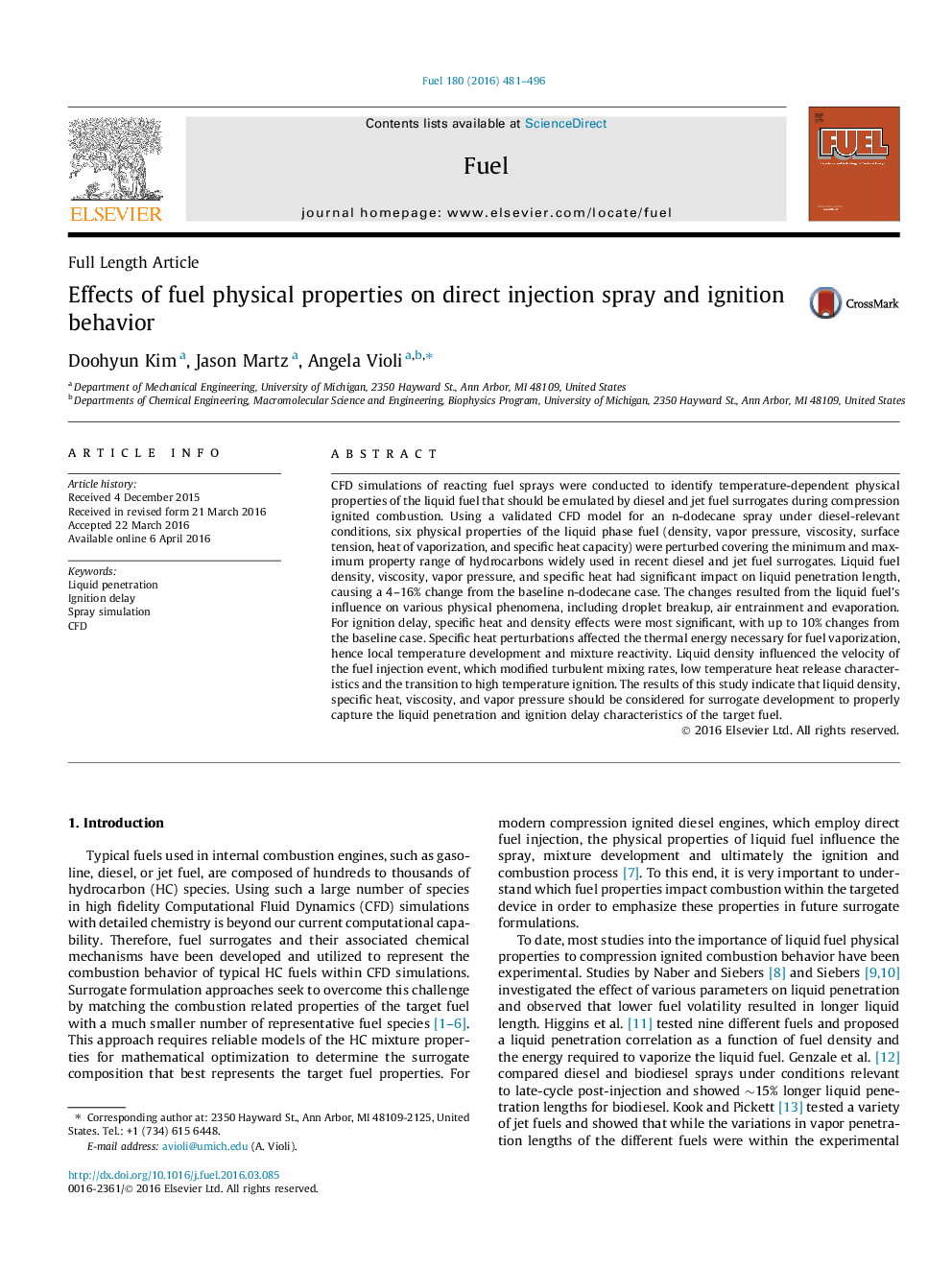| Article ID | Journal | Published Year | Pages | File Type |
|---|---|---|---|---|
| 6633808 | Fuel | 2016 | 16 Pages |
Abstract
CFD simulations of reacting fuel sprays were conducted to identify temperature-dependent physical properties of the liquid fuel that should be emulated by diesel and jet fuel surrogates during compression ignited combustion. Using a validated CFD model for an n-dodecane spray under diesel-relevant conditions, six physical properties of the liquid phase fuel (density, vapor pressure, viscosity, surface tension, heat of vaporization, and specific heat capacity) were perturbed covering the minimum and maximum property range of hydrocarbons widely used in recent diesel and jet fuel surrogates. Liquid fuel density, viscosity, vapor pressure, and specific heat had significant impact on liquid penetration length, causing a 4-16% change from the baseline n-dodecane case. The changes resulted from the liquid fuel's influence on various physical phenomena, including droplet breakup, air entrainment and evaporation. For ignition delay, specific heat and density effects were most significant, with up to 10% changes from the baseline case. Specific heat perturbations affected the thermal energy necessary for fuel vaporization, hence local temperature development and mixture reactivity. Liquid density influenced the velocity of the fuel injection event, which modified turbulent mixing rates, low temperature heat release characteristics and the transition to high temperature ignition. The results of this study indicate that liquid density, specific heat, viscosity, and vapor pressure should be considered for surrogate development to properly capture the liquid penetration and ignition delay characteristics of the target fuel.
Keywords
Related Topics
Physical Sciences and Engineering
Chemical Engineering
Chemical Engineering (General)
Authors
Doohyun Kim, Jason Martz, Angela Violi,
